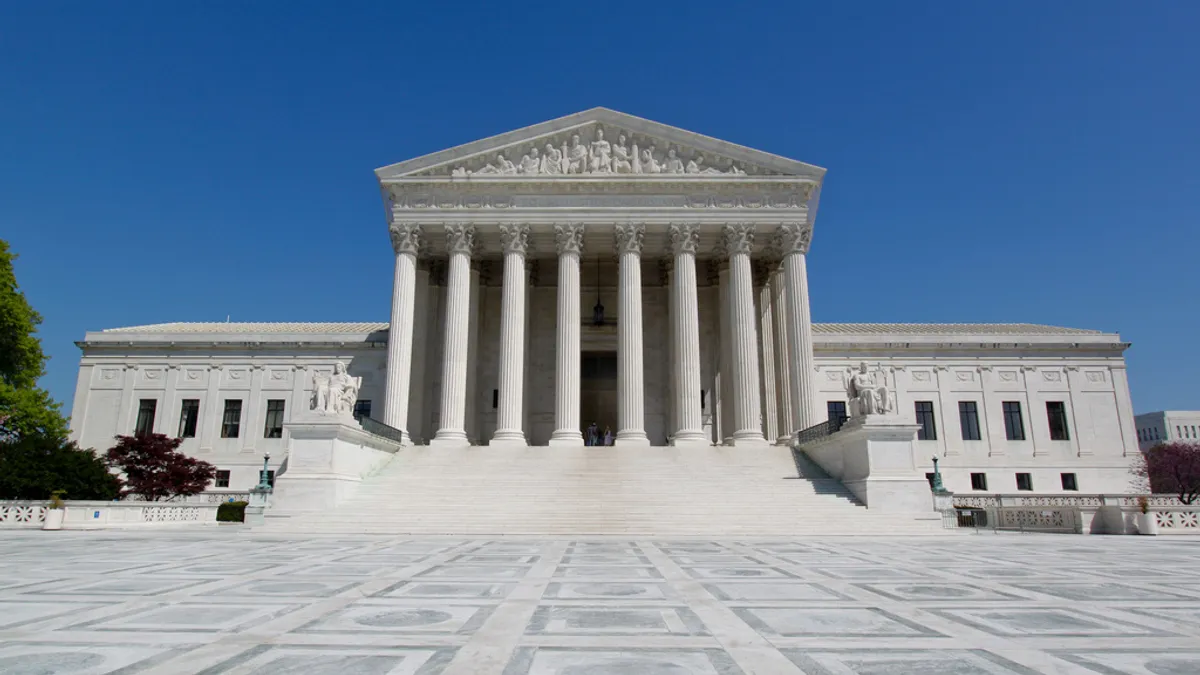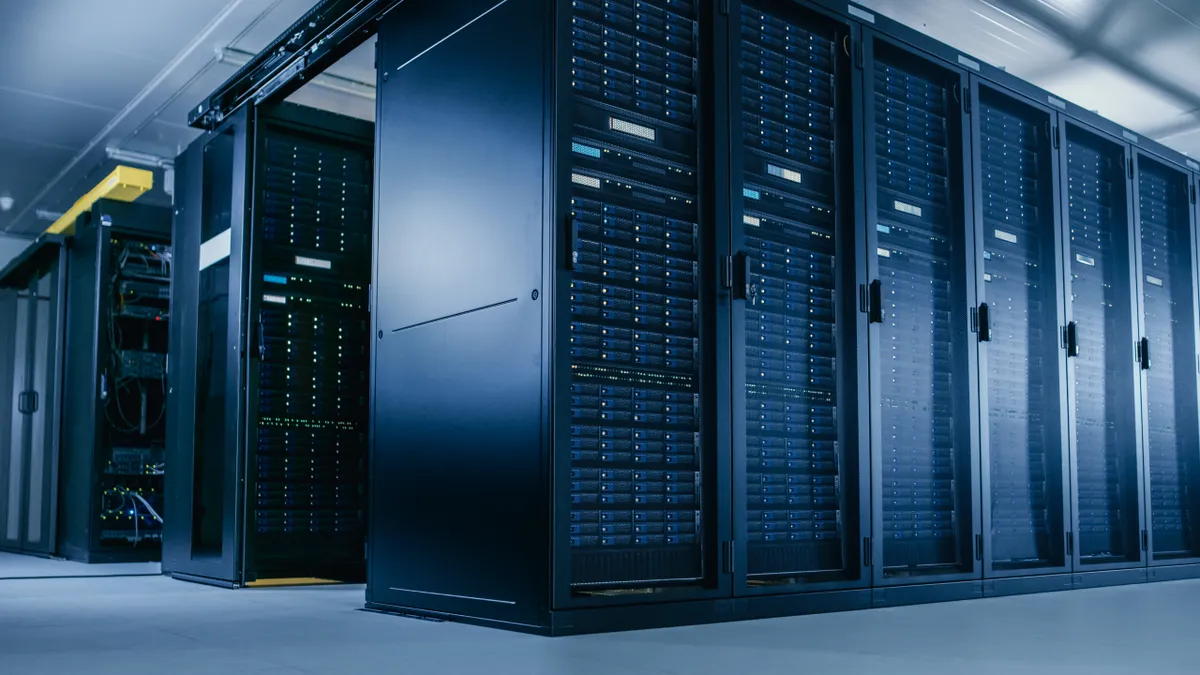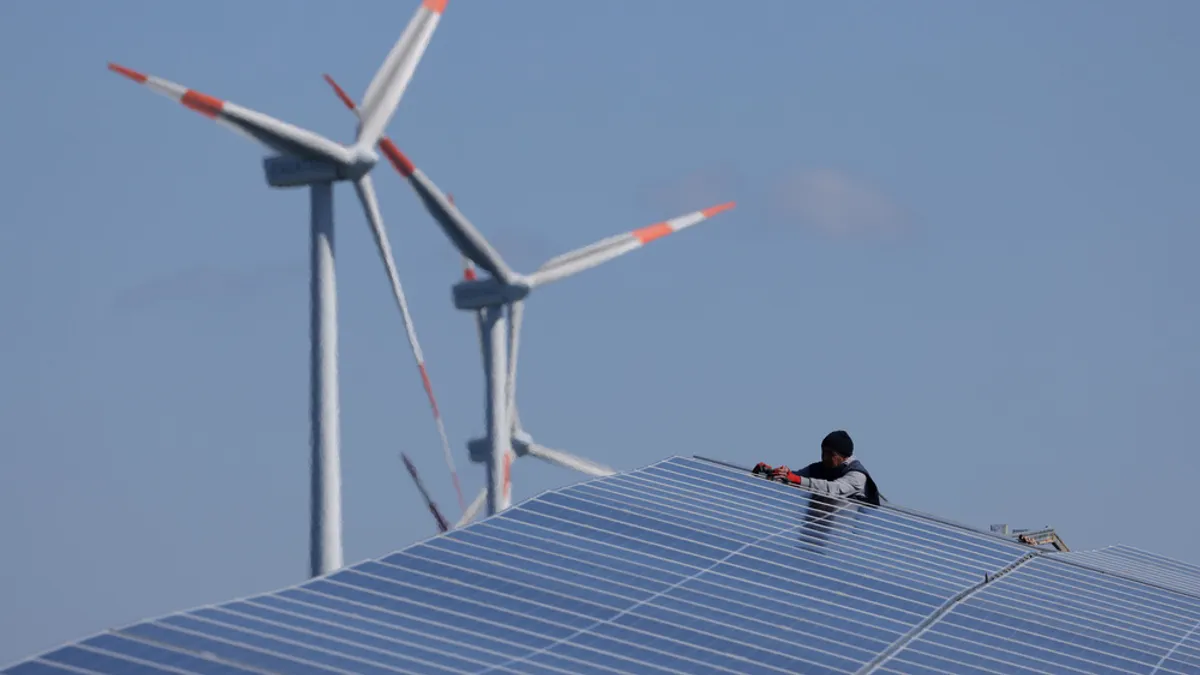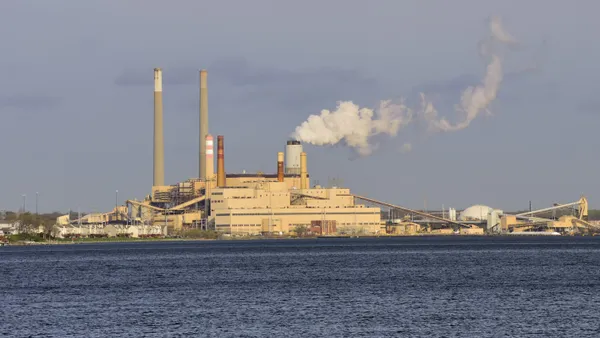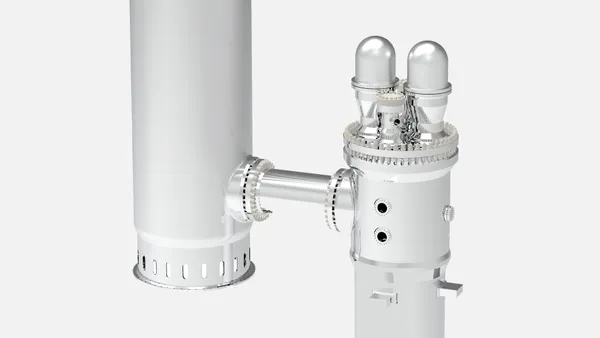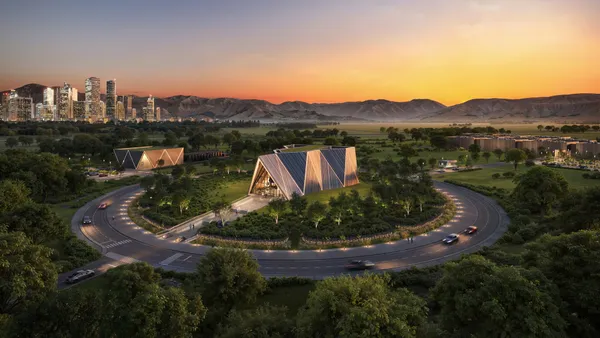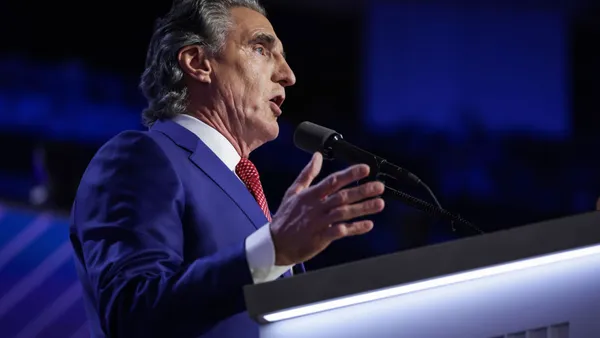Correction: An earlier version of this post stated that CPP compliance would begin in 2020. That is incorrect. While the draft rule proposed compliance would begin in 2020, the final rule announced in August 2015 established the compliance period will begin in 2022. An earlier version of this post also stated the plan was first proposed in 2015, and finalized in the summer of 2016. That is incorrect. The plan was proposed in 2014 and finalized in the summer of 2015.
Dive Brief:
- In a 5-4 ruling on Tuesday, the U.S. Supreme Court ordered the Obama administration to hold off on any efforts to implement the Clean Power Plan (CPP) until legal challenges to the regulation have played out.
- The ruling came after the U.S. Court of Appeals for the District of Columbia Circuit denied a request to stay the federal carbon regulations in January. A coalition of 29 states and state agencies led by Texas Attorney General Ken Paxton and West Virginia Attorney General Patrick Morrisey then appealed to the Supreme Court to stay implementation of the CPP.
- The regulatory package, which targets a 32% reduction in carbon emissions from the power sector nationwide by 2030, will be put on hold until the U.S. Court of Appeals for the D.C. Circuit reviews the plan and any subsequent Supreme Court appeals are over. A hearing at the D.C. Circuit is set for June 2, 2016.
Dive Insight:
The plan, which was first proposed in 2014, was finalized in summer 2015. Efforts to block the regulatory package from taking effect have been in motion since then. Under the plan, states were supposed to submit their implementation plans by September 2016, with compliance slated to begin in 2022.
Opponents to the plan argue that the agency is overstepping its authority under the Clean Air Act by seeking to regulate pollution sources "outside the fenceline" of individual power plants. Morrisey said West Virginia and other states "will suffer irreparable harm" if the regulations go into effect.
The EPA and the Obama administration argue the regulation is grounded on sound legal and technical foundations, with the agency arguing it has the authority to regulate power plant emissions under the Clean Air Act, the Hill reports.
The ruling introduces uncertainty as to whether states and utilities will have to comply with the package.
Jody Freeman, a Harvard law professor and former environmental legal counsel to the Obama administration, told the New York Times that the ruling suggests a "high degree" of skepticism toward the CPP from five justices on the court.
Even if the rule is ultimately upheld, the Supreme Court's stay on implementation of the rule could significantly impact compliance timelines for states and utilities. As it stands, the EPA will be unable to enforce its September deadline for states to submit compliance plans or request an extension. Without enforcement from the EPA, states may have to decide on their own whether to comply.
The EPA will continue to work with states on compliance plans while litigation goes forward, according to the White House. The White House expressed its disappointment in the ruling in a statement:


